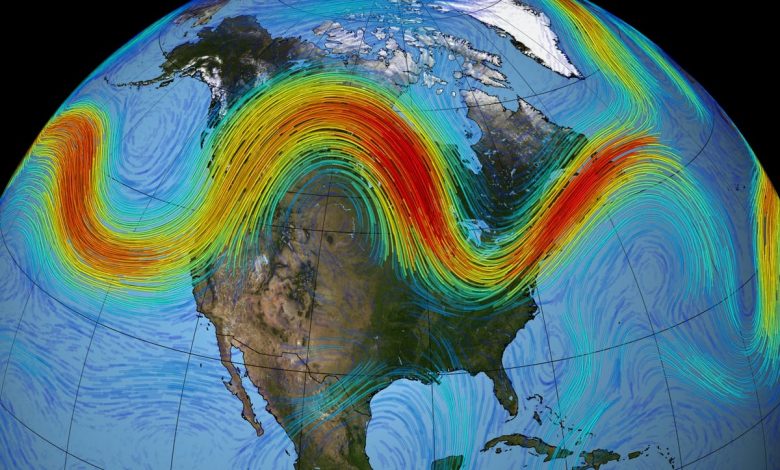Climate Change Is Causing Unlivable Heat In Europe And UK
Highest level of heat alerts are issued in Western Europe and UK

As gas-hungry Europe revives coal plants, complicating its climate ambitions, the blistering heat this summer shows just what’s at stake After the second-warmest June on record, western Europe is bracing for its second dangerous heat wave of the summer. The UK, Portugal, Spain and France are facing record-breaking temperatures this week, with little relief in sight. New records have been set as temperatures topped 40 degrees Celsius (104 degrees Fahrenheit) across much of Spain and Portugal Wednesday amid a persistent heat wave across western Europe.
In northwest Spain, the city of Ourense set its all-time temperature record of 43.2 degrees Celsius (109.76 degrees Fahrenheit) on Tuesday, according to Spain’s meteorological agency, AEMET.
The central Portuguese town of Lousã set an all-time record of 46.3 degrees Celsius (115.34 degrees Fahrenheit) and Lisbon set a July record of 41.4 degrees Celsius (106.52 degrees Fahrenheit).
But the worst is yet to come
European nations are sweltering under a blistering heatwave that has sparked forest fires and concerns that such early summer blasts of hot weather will now become the norm that is in line with scientists’ predictions that such phenomena will now become routine along with drought due to global warming.
Torrential rains in Japan, record-breaking heatwaves in Europe, and recurring droughts in the western US. For the second year in a row the start of extreme weather events predicted by IPCC report released earlier this year.
The IPCC WG 111 report clearly said thatGlobal GHG emissions in 2030 associated with the implementation of nationally determined contributions (NDCs) announced prior to COP26 would make it likely that warming will exceed1.5°C during the 21st century. Likely limiting warming to below 2°C would then rely on a rapid acceleration of mitigation efforts after 2030. Policies implemented by the end of 2020 are projected to result in higher global GHG emissions than those implied by NDCs. Earlier Grantham Research Institute on Climate Change and the Environment at the London School of Economics and Political Science had predicted that Climate change impacts could cause damage to the UK equivalent to cutting the size of the economy by at least 7.4 per cent by the end of this century, unless there are stronger reductions in global greenhouse gas emissions, according to a report published (30May 2022).
With temperatures over 40C in parts of Europe, everyone is at risk, but some people are more vulnerable. We must prioiritize older people, especially those who live alone, as well as pregnant women, young children, people without homes and others who are more susceptible to the heat.
According to Dr Friederike Otto, Senior Lecturer in Climate Science at the Grantham Institute at Imperial College London and co-lead of World Weather Attribution: “Climate change is driving this heatwave, just as it is driving every heatwave now. Greenhouse gas emissions, from burning fossil fuels like coal, gas and oil, are making heatwaves hotter, longer-lasting and more frequent. Heatwaves that used to be rare are now common; heatwaves that used to be impossible are now happening and killing people. We saw this with the Pacific Northwest heatwave last year, which would have been almost impossible without human-caused warming.
“Heatwaves will keep getting worse until greenhouse gas emissions are halted. The longer it takes the world to reach net-zero emissions, the hotter and more dangerous heatwaves will get, and the more common and longer-lasting they will be. The only way to stop heat records being broken time and again is to stop burning fossil fuels as quickly as possible.”
Dr. Eunice Lo, Climate Scientist, University of Bristol, said “heatwaves are becoming more frequent and intense as the globe warms up, so we can expect more and hotter heatwaves in future. Scientists have linked many past heatwaves to human-induced climate change. This means that observed heatwaves have been made more likely to occur or more intense because of human emissions of greenhouse gases. An attribution study is needed to quantify this for the current heatwave, but we know that climate change has increased the chances of extreme heatwaves in general.
“As emissions continue, we can expect temperatures to rise further. Record-breaking temperatures will become more likely to occur. The current hottest UK temperature is 38.7°C, recorded at Cambridge Botanic Garden in July 2019. Scientists expect this record to be broken in the future because of climate change.
“Extreme heat can be dangerous to human health. On average, about 2,000 extra deaths in England are related to heatwaves each year. It is important to stay hydrated, stay indoors or under shade, and check on friends and family during a heatwave. While sunny weather is often much welcomed, it’s important not to underestimate the impacts of heat and to take appropriate precautions. We also need to adapt to heat in the long term. This includes designing homes, schools and hospitals that have good ventilation and prevent overheating, increasing green space and parks in cities, and making heat warnings accessible to all.”
Dr Sjoukje Philip, Royal Netherlands Meteorological Institute (KNMI) said “there are regional differences between heatwaves. For example, heat waves in Western Europe heat up faster than in some other regions. Various factors can influence this: drying out of the soil, changes in the jet stream, high-pressure areas that often remain in one place for a long time. In India and Central America, the trend towards warmer heat waves is counteracted by local factors, such as irrigation or air pollution.”
The writer of this article is Dr. Seema Javed, a known Environmentalist, Journalist and Communications Expert




